I am writing a program to traverse a binary search tree.Here's my code:
Main.java
public class Main {
public static void main(String[] args) {
BinaryTree binaryTree = new BinaryTree();
binaryTree.add(50);
binaryTree.add(40);
binaryTree.add(39);
binaryTree.add(42);
binaryTree.add(41);
binaryTree.add(43);
binaryTree.add(55);
binaryTree.add(65);
binaryTree.add(60);
binaryTree.inOrderTraversal(binaryTree.root);
}
}
Node.java
public class Node {
int data;
Node left;
Node right;
Node parent;
public Node(int d)
{
data = d;
left = null;
right = null;
}
}
BinaryTree.java
public class BinaryTree {
Node root = null;
public void add(int d)
{
Node newNode = new Node(d);
if(root!=null)
{
Node futureParent = root;
while(true)
{
if(newNode.data < futureParent.data) //going left
{
if(futureParent.left == null)
{
futureParent.left = newNode;
newNode.parent = futureParent;
break;
}
futureParent = futureParent.left;
}
else
{
if(futureParent.right == null)
{
futureParent.right = newNode;
newNode.parent = futureParent;
break;
}
futureParent = futureParent.right;
}
}
}
else
{
root = newNode;
}
}
public void inOrderTraversal(Node node)
{
if(node!=null)
{
inOrderTraversal(node.left);
System.out.println(node.data);
inOrderTraversal(node.right);
}
}
}
I understand the addition process perfectly but I have trouble understanding the traversal. Now, the tree I am working with, for better reference is this:

The first statement in the inOrderTraversal() function visits 50,40 then 39 and finally hits null making the if condition false after which 39 is printed and is searched for a right child.After this the first statement stops executing and the stack unwinds for the 2nd and 3rd statements(inOrderTraversal(node.right) and print(node.data)) which leads to printing 40 and traversing to 41 which is the part I dont understand, i.e. how does the compiler restart statement 1 (inOrderTraversal(node.left)) after it has stopped executing as soon as there is fresh stuff in the stack.